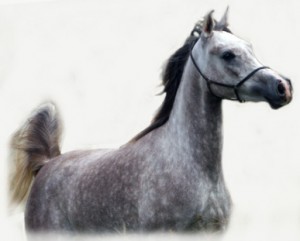How intuitive are we compared to our animals?
I know I tend to mention book 3 an awful lot in my blogs but it’s such a huge part of my life at present and nearly everything I do relates in some way to completing this manuscript. The whole journey has certainly led me down many different pathways! I can tell you there are times when I’m spinning around with confusion trying to identify the pathway to my original destination!! However every path has been interesting in itself. I’ve blogged about nearly every emotion we all posses, while thinking about family relationships as well as the past. This is all very relevant to book 3 and very needed for my characters to find their correct path to conclude this final book in the series.
I wonder how often we take notice of our intuition? I know personally there have been times where I’ve had this feeling that I am doing the right thing no debate but there have been other times when I’ve simply jumped head first into a disaster.
Siteyah Sihr www.pearsonsviewarabians.com
Wikipedia, www.em.wikipedia.org the free encyclopaedia states: Intuition is the ability to acquire knowledge without inference or the use of reason. “The word ‘intuition’ comes from the Latin word ‘intueri’, which is often roughly translated as meaning ‘to look inside’’ or ‘to contemplate’.” Intuition provides us with beliefs that we cannot necessarily justify. For this reason, it has been the subject of study in psychology, as well as a topic of interest in the supernatural. The “right brain” is popularly associated with intuitive processes such as aesthetic abilities. Some scientists have contended that intuition is associated with innovation in scientific discovery. Intuition is also a common subject of New Age writings.
In Carl Jung’s theory of the ego, described in 1921 in Psychological Types, intuition was an “irrational function”, opposed most directly by sensation, and opposed less strongly by the “rational functions” of thinking and feeling. Jung defined intuition as “perception via the unconscious”: using sense-perception only as a starting point, to bring forth ideas, images, possibilities, ways out of a blocked situation, by a process that is mostly unconscious.
Jung said that a person in whom intuition was dominant, an “intuitive type”, acted not on the basis of rational judgment but on sheer intensity of perception. An introverted intuitive type orients by images from the unconscious, ever exploring the psychic world of the archetypes, seeking to perceive the meaning of events, but often having no interest in playing a role in those events and not seeing any connection between the contents of the psychic world and him- or herself. Jung thought that extraverted intuitive types were likely entrepreneurs, speculators, cultural revolutionaries, often undone by a desire to escape every situation before it becomes settled and constraining—even repeatedly leaving lovers for the sake of new romantic possibilities. His introverted intuitive types were likely mystics, prophets, or cranks, struggling with a tension between protecting their visions from influence by others and making their ideas comprehensible and reasonably persuasive to others—a necessity for those visions to bear real fruit. It has been asserted that Jung’s analytical psychological theory of synchronicity is equal to intellectual intuition. How intuitive are you in your day to day life?
What about our animals intuition? Anyone who owns horses knows they are intuitive when it comes to sensing danger or if something is about to go horribly wrong. The way they deal with danger is to run. Anyone who has been on a bolting horse, knows only too well, how adapt a horse is at fleeing from whatever gives it a fright. They are also very intuitive when it comes to their owners emotional state. As Annie Murphy Paul wrote for O, The Oprah Magazine www.oprah.com in the article ‘Your Pet’s Incredible Animal Instincts’ – Intuition is founded in part on astute observation—something animals are much better at than humans. In the deadly tsunami that swept the coasts around the Indian Ocean in 2004, for instance, few wild animals were killed. Researchers theorize that they were tipped off by sound waves or ground vibrations and ran for higher ground. There’s evidence that humans can sense these types of cues, too, but we’re usually too busy paying attention to other, noisier stimuli to notice.
Yet if we’ve evolved away from observing the world the way animals do, we’re able to borrow their fascinating abilities. Seizure-alert dogs can sense tell tale changes in the way their owners look, act, and even smell, then issue a warning by whining, pawing, or licking. Guide horses are miniature breeds that work in sync with their blind owners, thanks to their herding instincts and ability to intuit subtle shifts in body language. Service animals even help with psychiatric disorders. You may have heard of Sadie, an African Grey parrot who travels in a special backpack her bipolar owner wears. When she senses he’s getting upset—long before he realizes it himself—she talks to calm him down. Which gives new meaning to the term birdbrained.

Leave a Reply